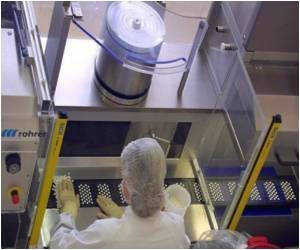Researchers have developed a new computational method that will make it easier for scientists to identify and prioritize genes, drug targets, and strategies. The method would help in repositioning drugs that are already on the market. The researchers are from Mount Sinai School of Medicine. Researchers on mining large datasets more simply and efficiently, will be able to better understand gene-gene, protein-protein, and drug/side-effect interactions. The new algorithm will also help scientists identify fellow researchers with whom they can collaborate.
Led by Avi Ma'ayan, PhD, Assistant Professor of Pharmacology and Systems Therapeutics at Mount Sinai School of Medicine, and Neil Clark, PhD a postdoctoral fellow in the Ma'ayan laboratory, the team of investigators used the new algorithm to create 15 different types of gene-gene networks. They also discovered novel connections between drugs and side effects, and built a collaboration network that connected Mount Sinai investigators based on their past publications.
"The algorithm makes it simple to build networks from data," said Dr. Ma'ayan. "Once high dimensional and complex data is converted to networks, we can understand the data better and discover new and significant relationships, and focus on the important features of the data."
The group analyzed one million medical records of patients to build a network that connects commonly co-prescribed drugs, commonly co-occurring side effects, and the relationships between side effects and combinations of drugs. They found that reported side effects may not be caused by the drugs, but by a separate condition of the patient that may be unrelated to the drugs. They also looked at 53 cancer drugs and connected them to 32 severe side effects. When chemotherapy was combined with cancer drugs that work through cell signaling, there was a strong link to cardiovascular related adverse events. These findings can assist in post-marketing surveillance safety of approved drugs.
Source-Eurekalert











